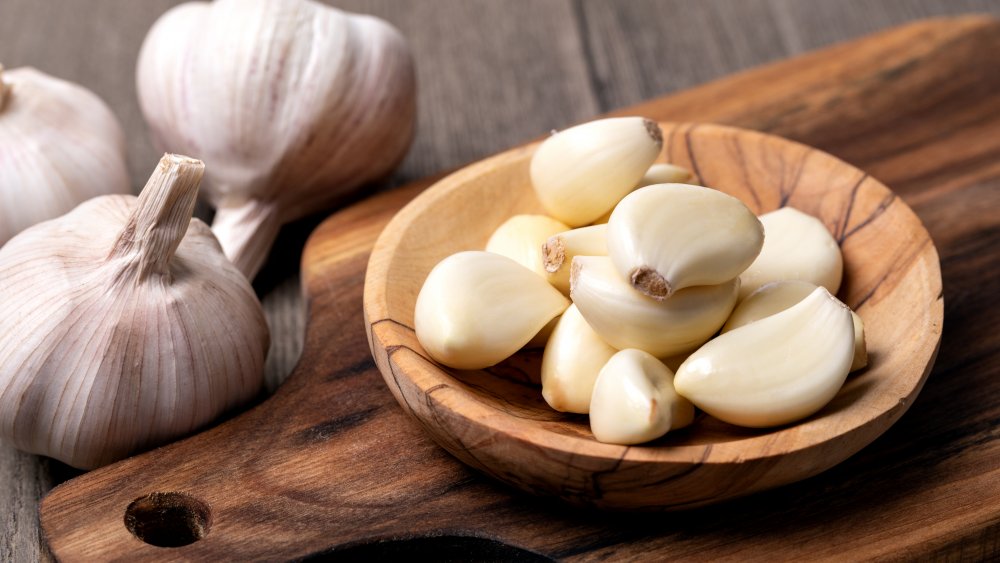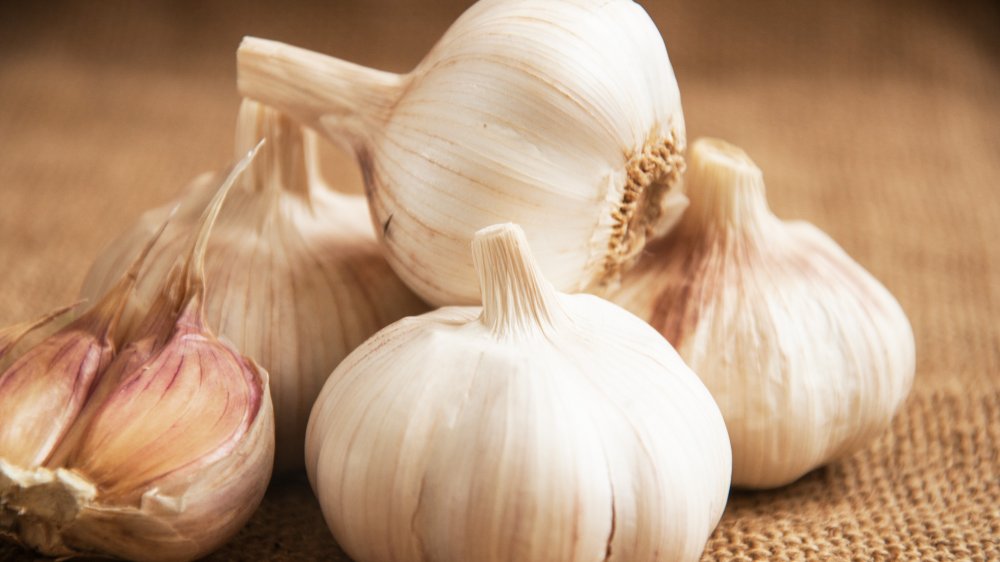The Proven Reasons Why You Should Start Eating More Garlic
Garlic has been lauded for its health benefits for millennia by civilizations such as the Romans, Chinese, Greeks, and Egyptians (via Healthline). Recently, researchers have begun looking at these reasons in ways that are slightly more scientific than swearing by garlic because a family member told you that eating a raw clove would help to ward off a cold.
While garlic isn't nutritious in the traditional sense (it has very minor amounts of vitamin B6, vitamin C, manganese, and selenium), some research has shown that the majority of the varied health benefits are due to sulfur compounds present when garlic is freshly chopped or crushed.
However, other research has found that because garlic contains some 40 other compounds, researchers are unable to specifically pinpoint which one of them (or which combo) is really responsible for how healthy it is (via Consumer Reports).
Research has shown, though, that perhaps your grandmother was on to something when she said that garlic was a cure for the cold. A study that took place over the course of three months found that over the course of the study, those who took a garlic supplement every day experienced 63 percent fewer colds compared to people in the study who took a placebo.
The effect of adding garlic to your diet
Those who did have a cold saw the average length reduced by 70 percent compared to the people who took a placebo. If you find that you're particularly prone to colds, perhaps the addition of some garlic in the colder months of the year can help to reduce the likelihood of coming down with the sniffles.
While this is something of a short-term result of garlic intake, garlic consumption has also been linked to health benefits over the long term as well.
Garlic has also been shown to lower low-density (bad) cholesterol, which has a positive overall effect on your cardiovascular health. The antioxidants contained in the pungent plant also are thought to reduce oxidative damage which can result in Alzheimer's disease and dementia.
Though it's difficult to pinpoint scientifically, garlic is also thought to increase longevity as well as athletic performance. It was given to ancient Greek athletes before they performed at the Olympics and was used in ancient cultures to reduce fatigue among laborers.

